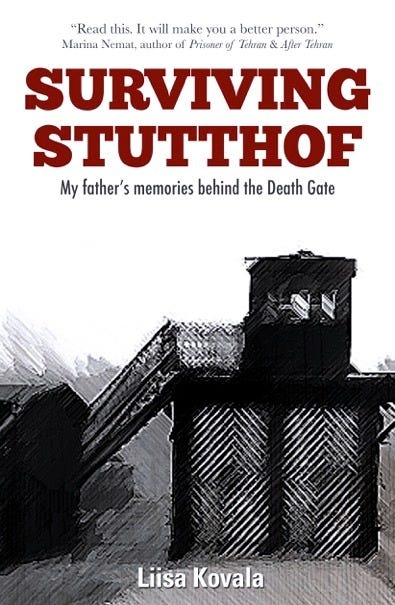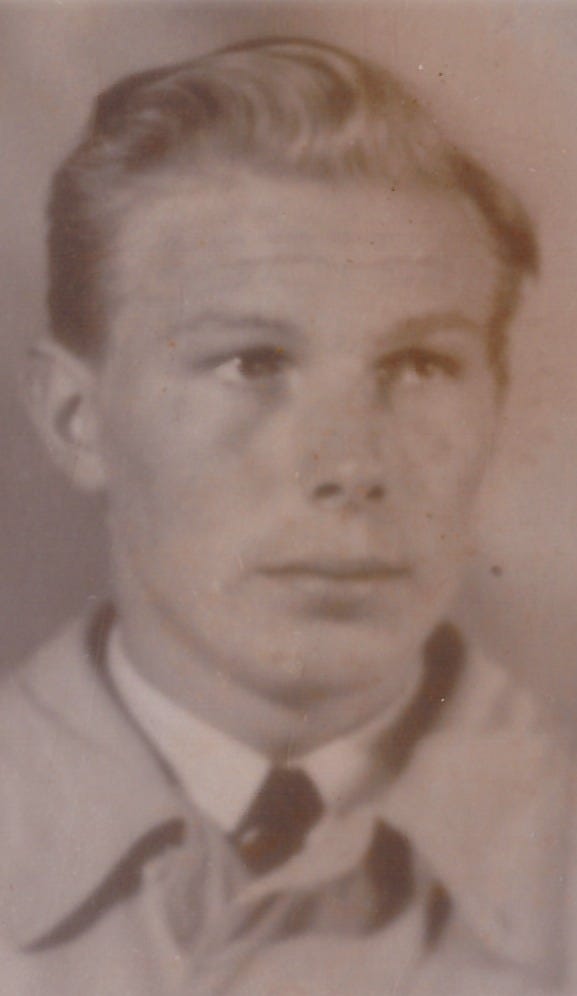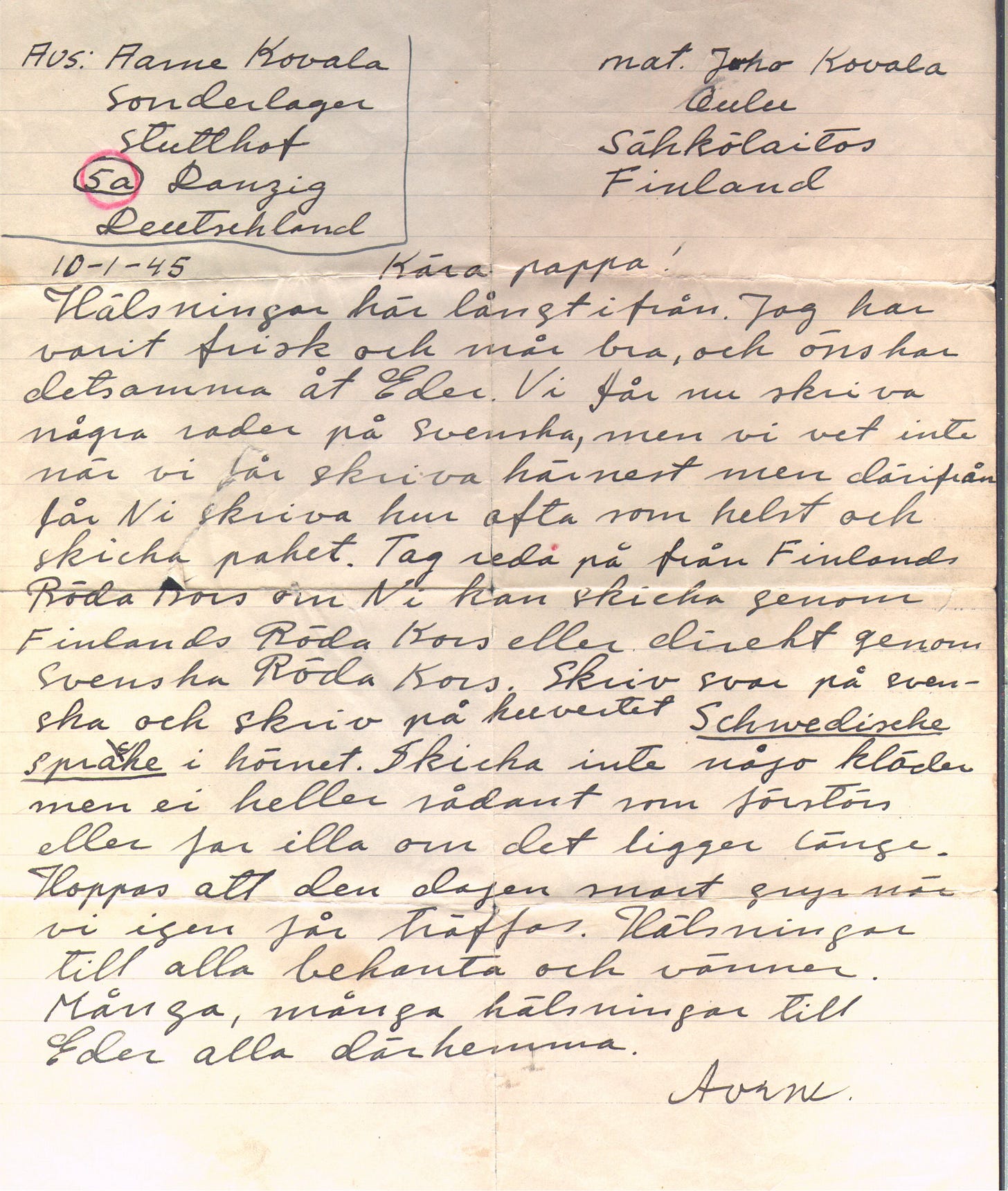Behind the Death Gate: Commemorating 80 Years Since My Finnish Father's Imprisonment at Stutthof
From book idea to publication and beyond.
This year marks the 80th anniversary of the end of World War II, so I’m writing a series of posts about my father’s war experiences and our journey writing Surviving Stutthof: My Father’s Memories Behind the Death Gate together.
The Finnish sailors waited outside the infamous Death Gate for hours, observing the frail and emaciated prisoners and fearing for their fate. Eventually, they were brought away from the main camp and led to Sonderlager, a few kilometres away. There, they were surprised to see the inmates were Norwegian policemen who had opposed the Quisling government. For the next many months, the Finnish sailors and the Norwegian policemen shared barracks, and to the relief of the sailors, Red Cross packages sent from Norway.
"In this personal labor of love, the care Kovala takes in recounting her father's experience is evident on every page. A valuable, unique addition to the canon of survivor stories." – Kirkus Reviews
By the fall of 1944, the camp was in disarray. Inmates were not provided with the usual blue and white striped uniforms, but wore whatever clothes they wore on the day of their arrest. In my father’s case, it was a a light jacket that would not serve him well as the harsh winter arrived. Instead of keeping records of the newcomers, records were being destroyed in haste as the opposing forces neared.
The sailors were forced to endure hard labour, starvation diets, harsh climates, and pervasive diseases. Those who did not comply with orders were swiftly and harshly dealt with at the hands of the kapos or the prison guards. Death lurked at every corner. A typhus epidemic swept through the camp in 1944. Prisoners who were too weak or sick to work were gassed with Zyklon-B in the small gas chamber or camp doctors used lethal injections. As many as 110 000 prisoners were deported to Stutthof and approximately 65 000 prisoners died at Stutthof.
Within a few months time, the sailors would be on the move again, as the fear of the Allied forces growing ever closer became a reality. From the camp, my father could hear the sounds of bombings in the distance. In these months, he wrote to his parents only one time. The letter—addressed to his father and written in Swedish so the authorities could monitor its contents—says little about the conditions in the camp, but hopes they will someday meet again. The letter did not arrive until after their son returned home in June 1945.
📚 At Women Writing, we’re marking the 80th anniversary of the end of World War II. Get a copy of Surviving Stutthof: My Father’s Memories Behind the Death Gate and receive a complimentary 6-month paid subscription to Women Writing with proof of purchase.

Happy writing!










